A worthy successor
Amazon Kindle Paperwhite Kids
Pros
- Large-sized screen for easy reading
- Includes one year of Amazon Kids+ for access to eBooks
- Includes durable case and worry-free guarantee
- Waterproof design
- Adjustable light for reading day and night
Cons
- Slightly more expensive
- Might be too big for younger kids
- No AC adapter included
The Amazon Kindle Paperwhite Kids is a solid upgrade option from the previous generation Kindle for kids, with features that are worth the extra dough, like an adjustable warm light, larger, full-flush screen, and more than twice the rated battery life.
A good budget option
Amazon Kindle Kids
Pros
- Includes one year of Amazon Kids+ for access to eBooks
- Includes durable case and worry-free guarantee
- Slightly cheaper
Cons
- Not waterproof
- Smaller, lower-res screen
- No adjustable warm light
- Less than half the rated battery life
If you already own the Kindle Kids Edition and it meets your needs, you don't need to race to upgrade. But if you're buying new, unless you're on a super-tight budget, the new Kindle Paperwhite Kids is worth getting over this one, thanks to some notable improvements.
When it comes to kids and screen time, it's an ongoing battle. While you might want to consider getting your child one of the best Android tablets, if the goal is to promote reading, you might want to opt for an eReader instead. The Amazon Kindle Paperwhite Kids vs. Kindle Kids Edition are both specifically geared toward young readers. And they are an excellent alternative to traditional "screen time" since they are limited to just books and Audiobooks: no distracting apps, videos, or games. They both have great features, but the Amazon Kindle Paperwhite Kids, launched in 2021, offers worthwhile upgrades over the 2019 version Kindle Kids Edition. So what are they, and why choose it over the older model? Here's a breakdown of the core features.
| Amazon Kindle Paperwhite Kids | Amazon Kindle Kids Edition | |
|---|---|---|
| Screen | 6.8-inch black & white, anti-glare, 300ppi | 6-inch, black & white, anti-glare, 167ppi |
| Connectivity | Wi-Fi, Bluetooth | Wi-Fi, Bluetooth |
| Storage | 8GB | 8GB |
| Battery Life | Up to 10 Weeks | Up to 4 Weeks |
| Water-Resistant | IPX8 Rated | No |
| Amazon Kids+ Trial | Yes | Yes |
| 2-Year Worry-Free Guarantee | Yes | Yes |
| Case Colors | Tree, Robot Dreams, Black | Blue, Pink, Rainbow Birds, Space Station |
| Audible Support | Yes | Yes |
| Parental Controls | Yes | Yes |
| Dimensions | 5.1 x 6.9 x 0.5 inches | 6.4 x 4.7 x 0.5 inches |
| Weight | 321 grams | 288 grams |
There are some noticeable upgrades from the Amazon Kindle Kids Edition to the Amazon Kindle Paperwhite Kids and some similarities between the two devices. This might make it a difficult decision between the two, mainly if the delta in price takes things over your budget. But let's look at whether it's worth the extra bucks based on your needs and your child's.
Amazon Kindle Paperwhite Kids vs. Kindle Kids Edition: Size, resolution, and design
When first looking at them, the most noticeable difference between these two Kindles is the size: the Kindle Paperwhite Kids has a much larger 6.8-inch screen than the Kindle Kids Edition's 6-inches. This is a good thing for those who want something bigger and for kids who require a larger font to get more words per line, whether because it's easier for them to learn words or related to vision problems. However, this might not be ideal if the Kindle is for a younger child who might find the size unwieldy (though realistically, 6.8 inches is about the size of a traditional paperback anyway). Note that because the Paperwhite Kids is slightly larger, it is also slightly heavier, though the difference is negligible.
It isn't just about the size, though. While both offer text in black & white E-ink to mimic the look of a true paperback book, the text will be much clearer and nicer on the new Paperwhite thanks to the significantly higher resolution of 300ppi versus the Kids Edition that offers just 167ppi. Both are glare-free, so you can read easily in direct sunlight during the day or while cuddled up in bed at night. But with 17 LEDs in the Paperwhite versus just four in the Kindle Kids, along with an adjustable warm light, you'll get much more personalization with the Paperwhite. If your child tends to read at night before bed after dimming the lights, the Paperwhite's adjustable warm light will be worth going that route alone.
Both come with a durable kid-friendly case that protects them from bumps, drops, and scratches. It has a magnetic snap closure that will wake the device when you open it and put it to sleep when you close it to conserve battery life. The designs are very different, though. While the Kindle Kids case comes in traditional "kid" colors like blue and pink as well as fun designs like rainbow birds and space stations, the Paperwhite Kids comes in trees, dreams, and basic black. It's clear that the designs of the Paperwhite are geared more toward older kids, say aged 8+ up to the teen years, while the Kindle Kids colors and smaller size suggest it might be better suited for younger kids.
The Paperwhite Kids has a front flush design while the Kindle Kids does not, adding a slightly nicer elegance. It's also waterproof, rated for submersion in up to two meters of fresh water for up to 60 minutes or 0.25 meters of seawater for up to three minutes. This means you can more confidently take the Paperwhite with you virtually everywhere, allowing kids to use it by the pool or at the beach, for example. You also don't have to worry about accidental spills if they knock a glass of water over on it.
Speaking of which, both come with Amazon's two-year worry-free guarantee, which means Amazon will replace the Kindle should it break any time within the first two years of purchase.
Amazon Kindle Paperwhite Kids vs. Kindle Kids Edition: What can you do with them?
Looking at the core functionality, they both operate similarly to one another. For instance, both come with a one-year trial to Amazon Kids+, which provides access to thousands of books and Audible books kids can listen to using a pair of Bluetooth headphones or speakers. (There's no Immersion Reading support with either, which would allow for following along with the highlighted text as you listen, so the kids just need to lie back and enjoy.) Once the year is over, the subscription will auto-renew at a rate of $2.99/mo. Amazon Kids+ has some amazing titles kids will love, like the entire Harry Potter series and Lost Cities, as well as classics like Bridge to Teribithia. Additionally, you can buy and download books from the Kindle store for reading.
Both come with an 8GB storage capacity, holding up to 1,000 books — more than any child could possibly ever read. There's also free cloud storage for all Amazon content, so kids can rotate the selection of books stored locally on the device as desired.
Like any other eReader, both offer weeks of operation via a single charge of the battery, but there's a significant difference in battery life. Assuming your child reads for about a half-hour each day, with Wi-Fi turned off and the light no higher than 13. In this case, you'll get a solid 10 weeks of battery life with the Kindle Paperwhite Kids. In comparison, the Kindle Kids will only last about four weeks under the same conditions. Keep in mind that if the kids use Audible and keep Wi-Fi on, the battery will deplete much faster. The Paperwhite Kids can recharge in about 2.5 hours using a 9W USB adapter, but you need to buy one separately. Otherwise, it recharges using the included USB-C cable connected to a computer in about five hours. Meanwhile, the Kindle Kids takes about four hours to fully recharge using a 5W adapter (also not included) or the same time using the included USB 2.0 cable. The inclusion of USB-C allows for the quick charge time of the Kindle Paperwhite Kids, considering all of its upgraded features and higher-res screen.
Both also include features like Vocabulary Builder, which keeps a log of all words the child looked up in a text and creates flashcards with them. And Word Wise, which displays simple-to-understand definitions of difficult words in select titles. Kids can adjust these hints using a slider if they prefer more or less.
Both also allow for adjusting font size and space, line spacing (great for kids who like to run their finger along the text as they read), and margins. However, the Kindle Paperwhite adds a neat font called OpenDyslexic, which is preferred by kids with dyslexia. So if your child has dyslexia, this feature alone could sway you towards the Kindle Paperwhite Kids.
Amazon Kindle Paperwhite Kids vs. Kindle Kids Edition: Parental controls
Again, these Kindles are identical regarding the core parental controls, which can be accessed from the Parent Dashboard. Parents or caregivers can also set educational goals for their kids, such as reading a new book every week or 30 minutes per day. Parents can even manage their kids' access to certain content, including adjusting age filters, adding books to their account (maybe as a reward for doing chores), and also see the child's reading progress.
A feature coming soon to the Kindle Paperwhite Kids is the ability for parents to set a specific bedtime for each child's profile (multiple can be managed through the Parent Dashboard). As a parent to a son who loves to sneak books under his bed and read late at night, this feature is a godsend for parents with bookworm kids.
Amazon Kindle Paperwhite Kids vs. Kindle Kids Edition: Which one should you get for your kids?
My 9-year-old son is a huge bookworm: he would stay up all night reading a book to finish it if we'd let him. What's more, his affinity for the written word has resulted in an overflowing bookshelf with a variety of series he's collecting, from Harry Potter to Wings of Fire and Geronimo Stilton. A Kindle is a great way to encourage a voracious reading habit without adding tons of clutter to the home, nor handing your child a tablet that can distract them with apps, games, and the internet. Not to mention the brighter screen that can be harsher on the eyes.
When it comes to the Amazon Kindle Paperwhite Kids vs. Kindle Kids Edition, it's no contest: go with the Amazon Kindle Paperwhite Kids. When you're considering a device that's solely for staring at for hours at a time, you want the best resolution possible – even if it* is* just black and white E-ink text. Plus, you also want the most comfortable reading experience, and with the built-in adjustable warm lighting, your kids won't be straining their eyes to read in the dark or finding it too bright while they try to read outside in the sunlight. If your child has dyslexia, the Kindle Paperwhite Kids OpenDyslexia font option is a huge bonus. And the battery life that's 2.5 times that of the Kindle Kids Edition, any device you have to recharge less often is welcome.
The only reason to go for the older-model Kindle Kids Edition is if you are looking for something for a younger child (note that it's rated for kids 7+) who might find the Kindle Paperwhite Kids slightly too big. But considering most kids these days are used to using a tablet with an 8-inch or larger screen anyway, and the traditional paperback book is even about the same size as the Paperwhite's 6.8 inches, size shouldn't be an issue.
Beyond these upgrades, along with the faster USB-C charging and the different cover designs, they both function much the same and come with the exact offers, like the two-year worry-free guarantee and Amazon Kids+ trial. But the features of the Paperwhite Kids and the price, which isn't much more than the Kindle Kids Edition, mean it's the better choice between the two.
The better option
Amazon Kindle Paperwhite Kids
Upgrades that make a difference
$160 at Amazon $160 at Best Buy
The upgrades that come with the Amazon Kindle Paperwhite Kids make it worth getting, including a higher-resolution screen with clearer text, larger screen, adjustable warm light, and generous battery life. It's a no-brainer to go with this new model if you're buying new.
Good entry-level option
Amazon Kindle Kids Edition
Simple on sale
$110 at Amazon $110 at Best Buy
Unless you're really pinching pennies, the price difference between this model and the Paperwhite isn't enough to justify opting for the older model instead. If you find a Kindle Kids Edition on sale for even less, it's still a great option for young kids. But if you have the extra dough, the newer model is worth it.

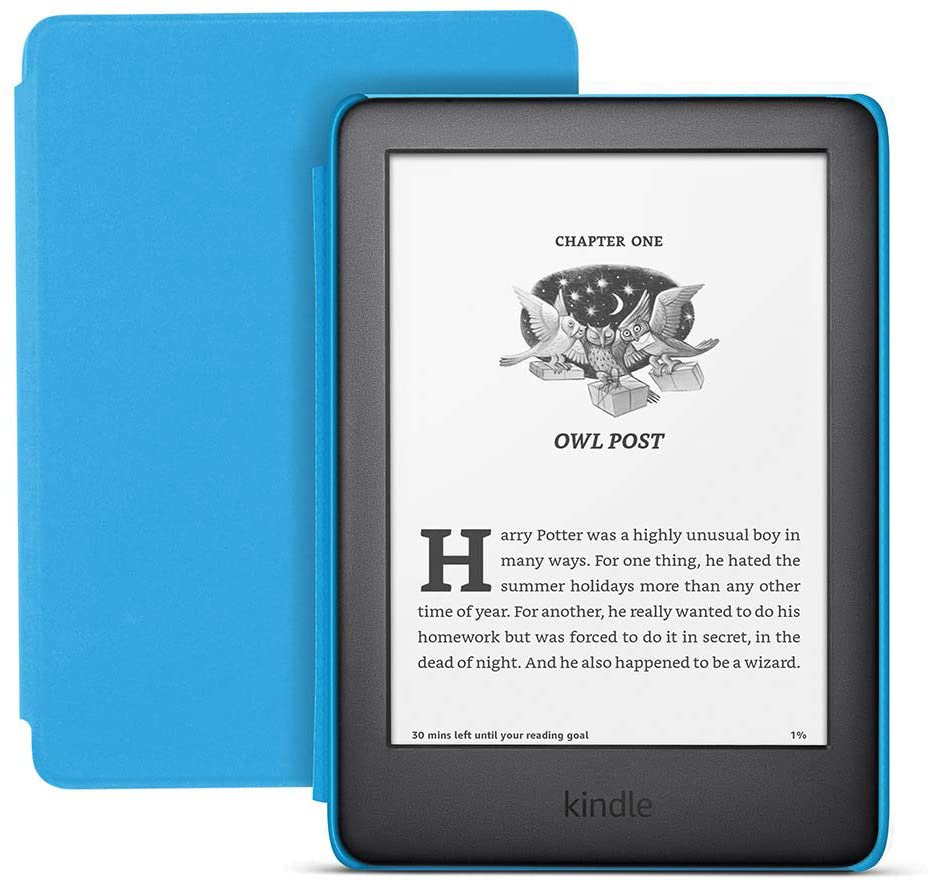
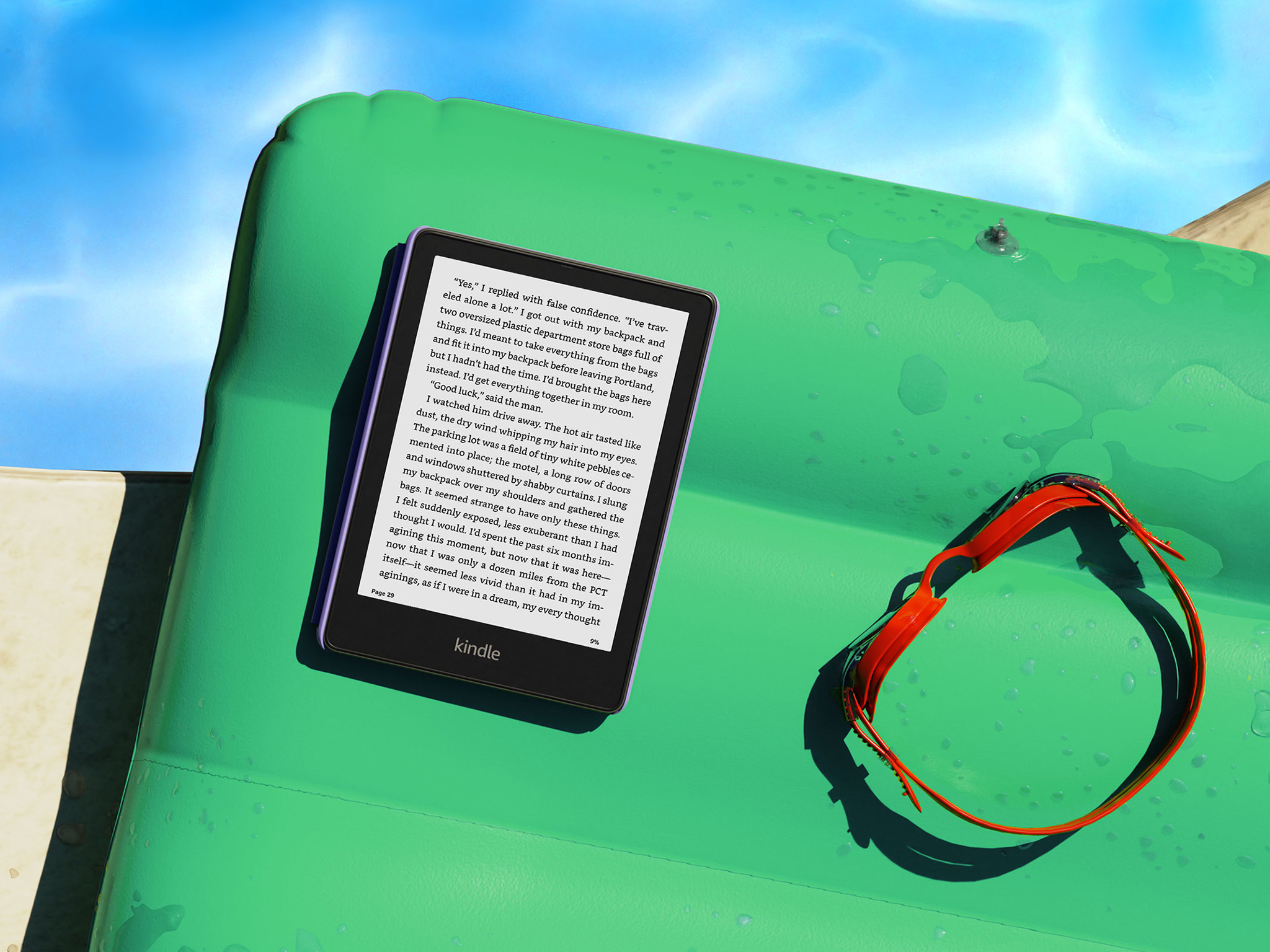


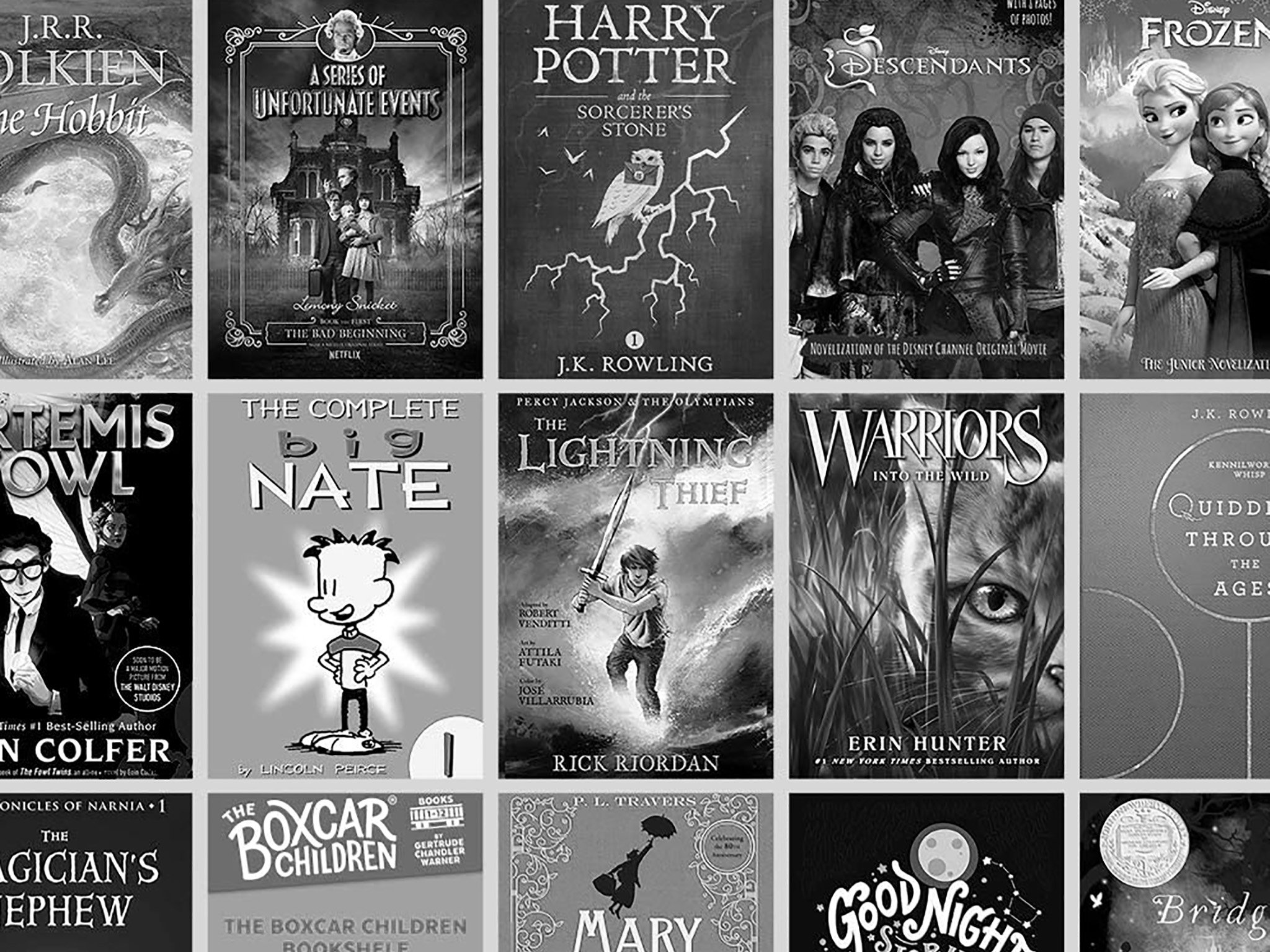
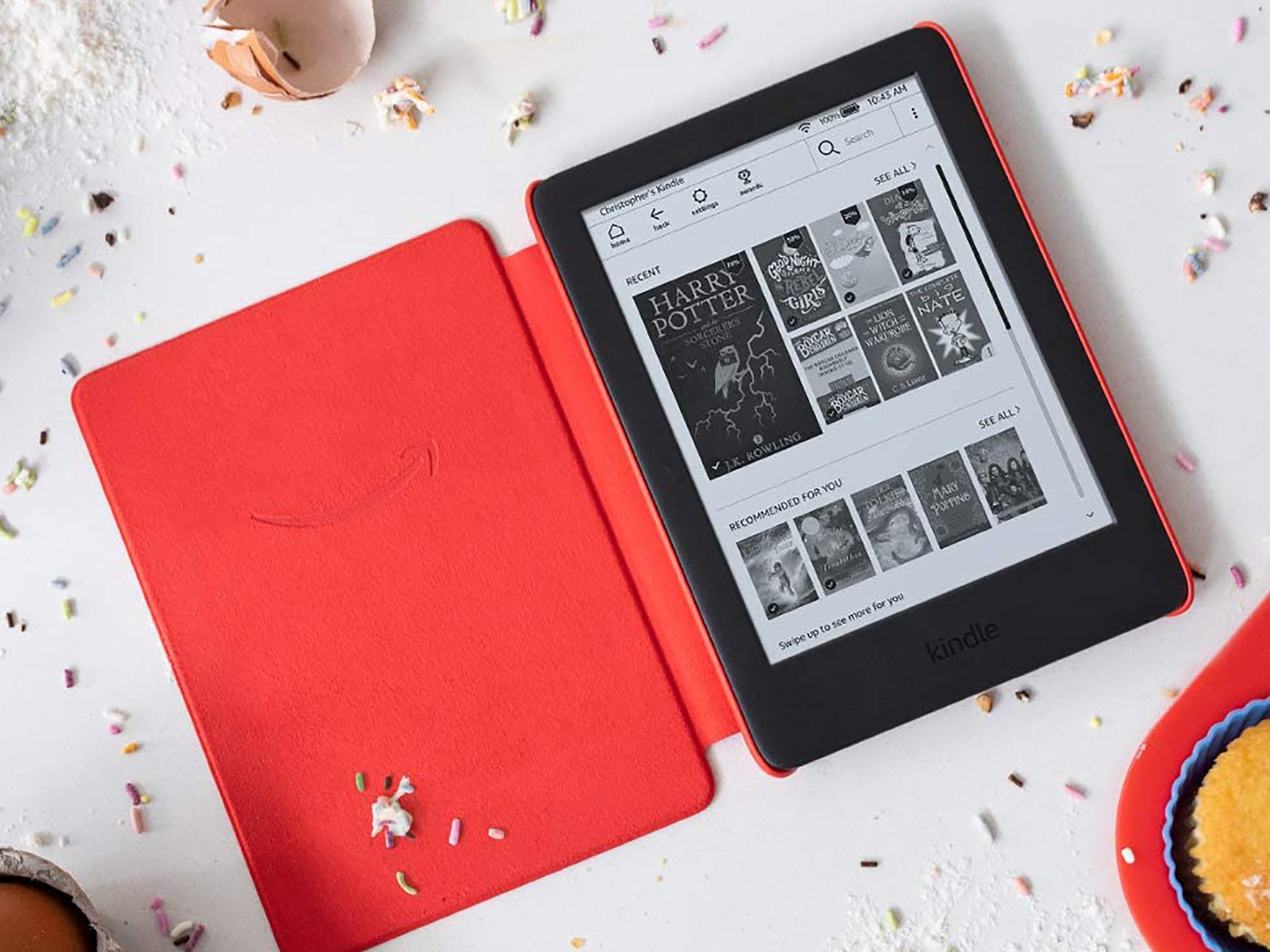
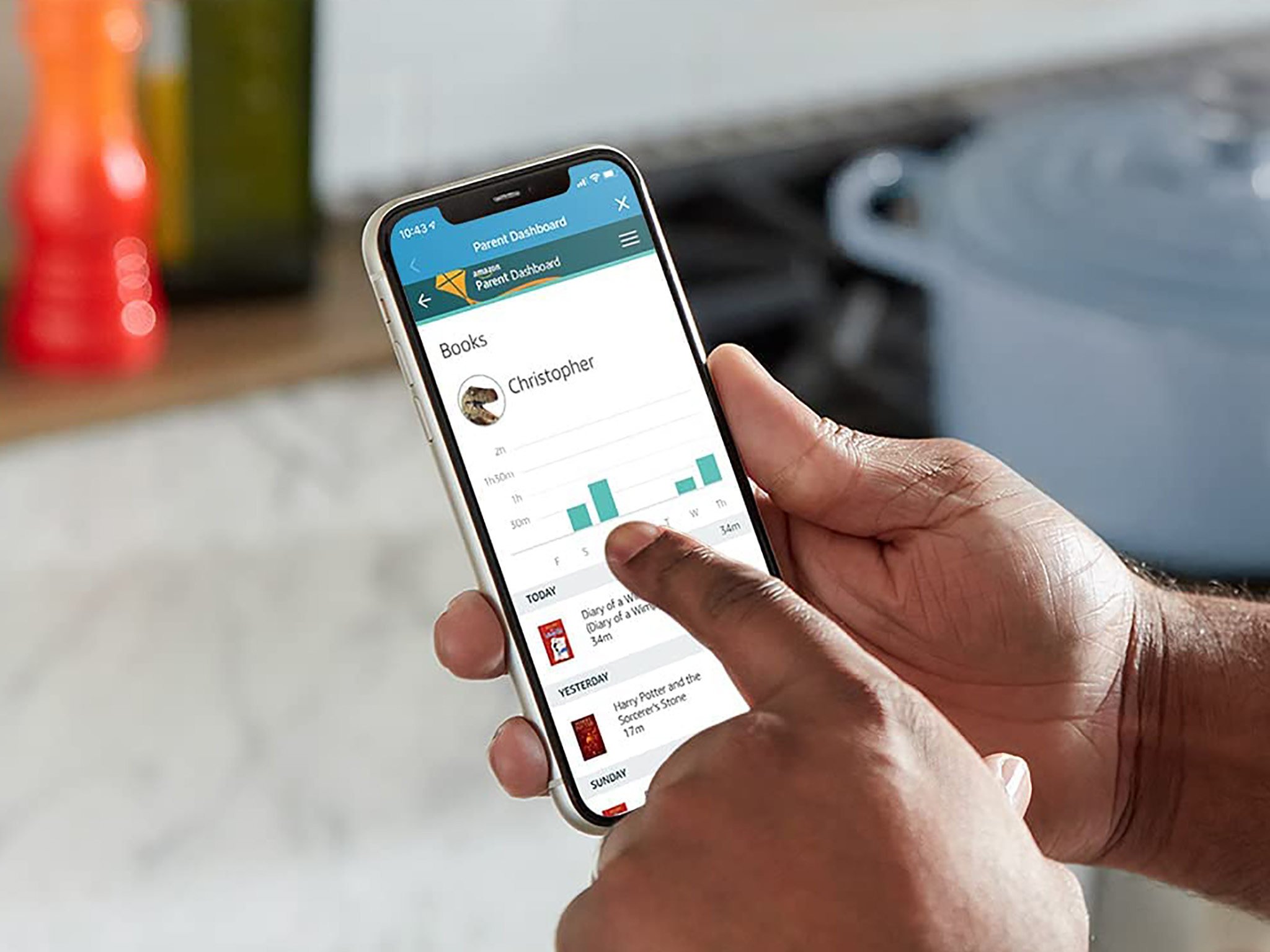
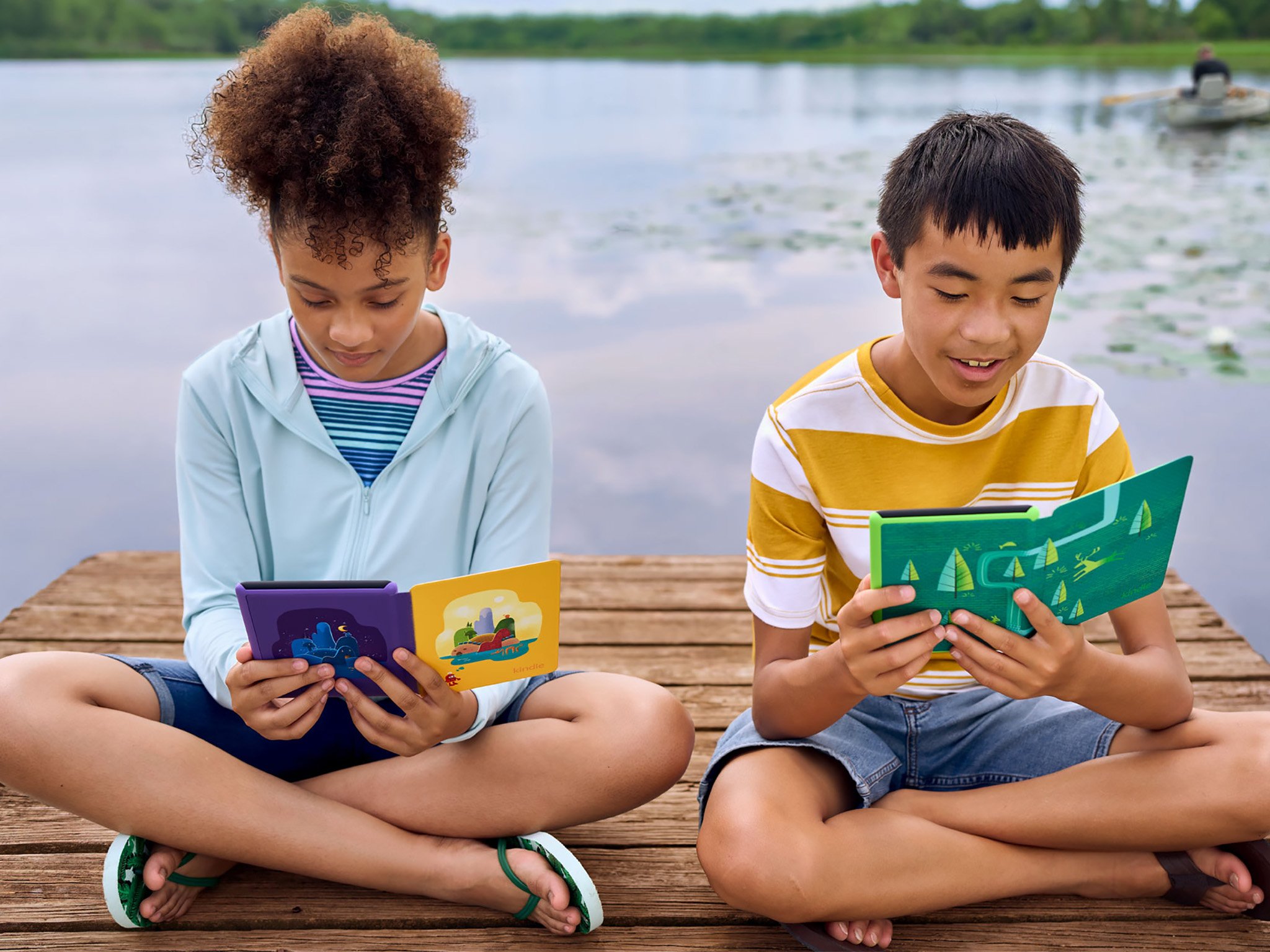

Tidak ada komentar:
Posting Komentar